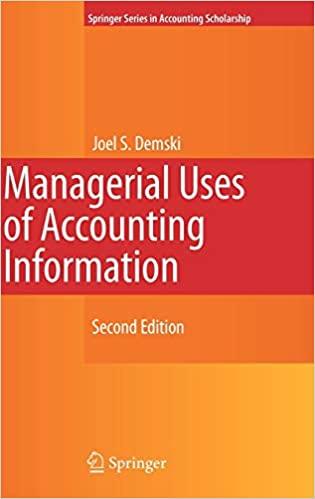11. informativeness and usefulness Ralph, who is risk neutral, owns a production process. One of three feasible...
Question:
11. informativeness and usefulness Ralph, who is risk neutral, owns a production process. One of three feasible labor inputs, L < B < H, must be selected and H is desired.
The labor supplier’s preferences are modeled in the usual constant risk aversion fashion, with risk parameter ρ = .0001. The supplier’s outside opportunity offers a normalized certainty equivalent of M =
0; and his personal costs are given by cH = 4, 000, cB = 1, 000 and cL = 0. The contracting arrangement is limited to payment based on output, which can take on one of two possible values, x1 or x2.
Output probabilities are displayed below.
x1 x2
π(x|H) .10 .90
π(x|B) .70 .30
π(x|L) 1 0
(a) Determine an optimal pay-for-performance arrangement.
(b) Suppose it is possible to install an additional measure, or monitor.
This monitor will report bad news if input L is supplied and good news otherwise. Is this monitor useful?
(c) Is the monitor in
(b) controllable? Is it informative (conditionally controllable)? Carefully explain this case of a serious control problem, a monitor that is both controllable and conditionally controllable, and yet is not useful.
Step by Step Answer:






